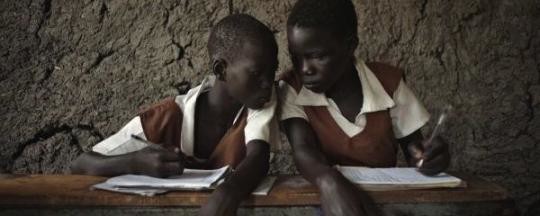The Education Department in Abyei and the Legislative Assembly in the disputed area between Sudan and South Sudan are at odds over a decision to impose a tuition fee of 50 South Sudanese pounds per puplil.
The Abyei Legislative Assembly passed a bylaw cancelling a decision by the Education Department, which imposed a fee of 50 SSP per student.
Speaking to Radio Tamazuj on Wednesday, the Services and Social Welfare Minister in Abyei Achuil Akol stated the 50 SSP which is imposed on each student is not a tuition fee but rather a contribution from the parents for the schooling of their children.
Akol, who is also the acting education minister, noted the education department in Abyei is facing enormous challenges such as the lack of textbooks, chairs and overcrowding as well as shortage of teachers.
He said the education ministry therefore took the decision to require the fees in order to meet some needs in the schools. He criticised the position of the Legislative Assembly to forbid imposing a nominal fee per student in the Abyei area.
For his part, lawmaker Adol Nyual Mawut told Radio Tamazuj that members of the assembly unanimously passed a motion repealing what he termed an illegal decision by the education department in the area.
The assembly is committed to implementing a policy by the national the government of South Sudan making primary and secondary education free of charge. He stated that renovations and the other improvements in the various schools in the area will be undertaken by the International Organization for Migration.
Pressure on services
Meanwhile, United Nations officials have expressed concern about the increasing number of South Sudanese displaced who are currently living in the contested area of Abyei, following fighting between the government forces and the rebels in Unity state.
In a press statement yesterday, the UN Coordinator for Development and Humanitarian Affairs Ali Al Zatari confirmed that over 3,000 families from Unity state are now seeking refuge in Abyei area, saying the influx of refugees into Abyei is an additional burden on the local population and could widen the existing humanitarian gap in the area.
UN estimates before the influx of South Sudanese households indicated that about 35,000 local residents of the Abyei area were already in need of humanitarian aid.




